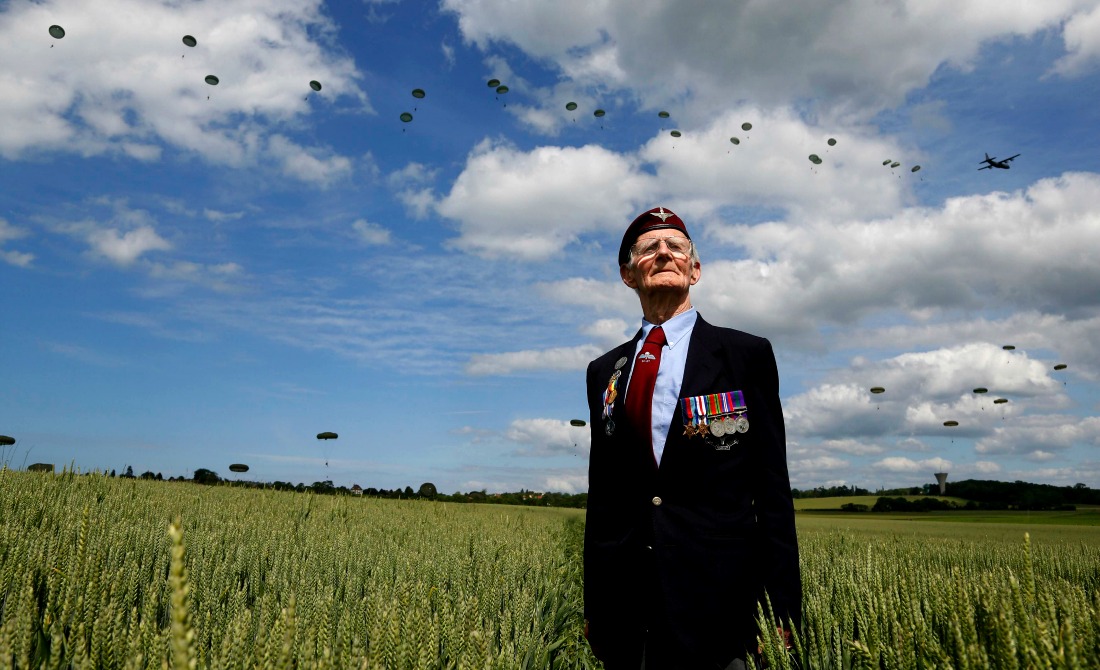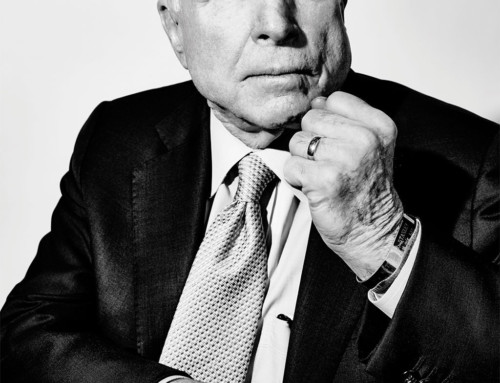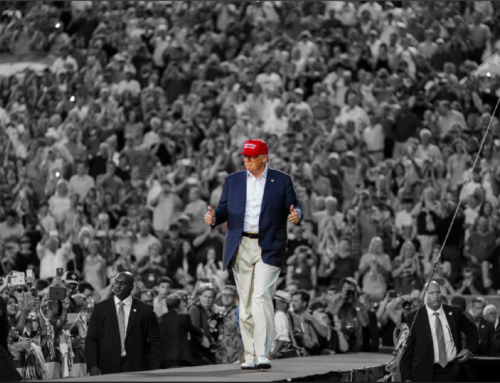Excerpted from “Losing the War,” by Lee Sandlin
Whenever people talk about the meaning of history somebody brings up that old bromide from Santayana, “Those who do not remember the past are condemned to repeat it.” But that’s nonsense. The circumstances that created an event like World War II couldn’t be duplicated no matter how many millennia of amnesia intervened.
To the extent that the war had an intelligible cause, it was in the rancors left over from World War I, exacerbated by the Great Depression — and those rancors existed only because of decades of hatred and infighting among the colonial empires of the 19th century. But the brief dominion of the Japanese “coprosperity sphere” lasted just long enough to wreck the colonial system in Asia, and the final convulsion of war bankrupted all the great powers of Europe, leaving the former rulers of the world in abject poverty — food rationing in both Germany and England lasted well into the 1950s. The first new historical trend of the postwar era was the systematic shedding of colonial possessions, and the just-created nations were immediately absorbed into new alignments of power demanded by the triumphant global empires of the atom. The old architecture of the world devised by Europe was as harmless a memory as a dissipating storm front. Like most big events in history, World War II obliterated its own causes.
Then too, one of the core lessons of modern military theory is that wars are inherently unrepeatable. The technology changes too quickly, and the nature of war changes with it. Every big war since the time of Napoleon has been fought with radically new weaponry and tactics. The result is that all the cutting-edge strategies of total war that made World War II seem so unsurpassedly horrible, from blitzkriegs to saturation bombings, have long since been superseded. Military hardware is immeasurably more sophisticated now; the precision of the “smart bombs” used in the gulf war would have been unthinkable in World War II. During the last year of Allied air raids (by one postwar estimate) fewer than half the bombs intended for specific targets came within a half mile of them. And, of course, the advent of nuclear weapons has made any future large-scale massing of conventional armies — such as marked most wars up through World War II — improbable in the extreme. Worse things than World War II will no doubt happen to the world; genocide has become a routine instrument of policy in wars from Southeast Asia to the Balkans to central Africa. But the vast tidal movements of armies and the patient, systematic wrecking of whole continents are now part of the unrecoverable past. The Wehrmacht and the Allied Expeditionary Force are as obsolete as the Golden Horde.
Besides, even if we did want to follow Santayana’s advice and remember the war, how could we do it? Too much of its detail and complexity is already gone, even at this narrow distance. As Thomas Browne wrote, “There is no antidote to the opium of time.” The work of erasure goes on all around us, incessantly and inexorably; a million silent losses are obliterating the war. There are anecdotes people don’t tell anymore, movies nobody rents, archives no scholar investigates. There are warehouses of secret wartime documents still scattered in nondescript factory districts all over the world — stacks of debriefings from some nameless Pacific island that 50 years ago was swallowed up in an artillery barrage. No one will ever unearth them all and produce a final accounting of the war — any more than the world will finally achieve justice for the war’s innumerable, officially sanctioned crimes. Oblivion has always been the most trustworthy guardian of classified files.
But there is another and simpler reason the war has been forgotten: people wanted to forget it. It had gone on for so many years, had destroyed so much, had killed so many — most U.S. casualties were in the final year of fighting. When it came to an end, people were glad to be rid of everything about it. That was what surprised commentators about the public reaction in America and Europe when the news broke that Germany and then Japan had at last surrendered. In the wild celebrations that followed nobody crowed, “Our enemies are destroyed.” Nobody even yelled, “We’ve won.” What they all said instead was, “The war is over.”
That was the message that flashed around the world in the summer of 1945: the war is over, the war is over. Huge cheering crowds greeted the announcement in cities across America and Europe. A spectacular clamor of church bells rang out across the heartland. Wails of car horns and sirens soared up from isolated desert towns, mystifying travelers who’d been on the road all night and hadn’t heard the news. People pounded on doors in hushed apartment buildings, they came out from their houses and laughed and cheered and hugged one another, they swarmed in the streets all through the summer night telling strangers how frightened they’d been and how glad they were it had finally ended. No one could stop talking; every new face that appeared in the crowd was an excuse to ask if they’d heard and then start telling their stories all over again.
As the darkness of the night settled in, they began turning on the lights the way they hadn’t done in years. Above the streets people in high windows ripped down their blackout curtains with exaggerated gestures of disgust, the crowds cheering them on. They tore the masks off their car headlights, and the streets suddenly danced with countless crazy shadows. In great glowing cliffs, the skylines of the cities switched blazingly to life. Unnoticed at the fringes of the crowds, the people who’d spent the war in windowless government rooms ordering blackouts and rationings drifted out, for just a little while, to enjoy the luminous summer air. And everywhere were amazed children, some carried in their parents’ arms, all staring in wonderment at the brilliance and fearlessness of the night and at the way the faces of grown-ups all around them were suddenly lit up with joy. Some had spent all of their lives within the shadow of this mysterious oppression, the war, and now it was miraculously gone — and it was as though they were seeing for the first time what the world was supposed to look like.
But if we remember this, we have to remember that one group didn’t cheer along with the rest: the soldiers in the battle zones. They were too astonished. They’d had no inkling that the war was so close to its end. Up until the last moment, the armies of the Allies believed that the war was still only half over — because after the defeat of Germany the invasion of Japan was still to come. The troops in Europe were preparing to be shipped to the other side of the world, while the troops already in the Pacific were waiting on their island bases for the immense mustering of forces to begin. Instead, without a word of warning, their commanders one August day gathered them in formation and announced that the war was over and they could go home.
Some of them did celebrate, and some prayed. But many just sat down where they were and stared in disbelief. On battle lines and in evac hospitals, in construction battalions and naval convoys, they all felt that same shocking hush, that stunning worldwide silence. It was over. The barrages had stopped, the planes would stay motionless on the airfields, the tanks could be allowed to freeze in place like ancient monuments. It was over. That endless, tormenting tension, that permanent despairing exhaustion brought on by years of adrenalin and reflexive terror — they could let all that go now. It was over. And for the first time since the war began the soldiers had the sudden freedom to reflect on the mystery of what had happened to them.
They had seen and done things beyond their imagining. In the deepest and most mysterious reaches of the world they’d watched storms of fire engulf the sky, they’d felt islands blown apart beneath their feet, they’d stared in wonderment as convoys of battleships around them filled the ocean from horizon to horizon, they’d witnessed friends erupting into showers of blood and shredded flesh, and they’d been possessed by berserker rage. But most of all they’d walked — foot by foot, day by day — further into the world than they’d ever thought possible, across continents, through ruined cities and the debris of ancient civilizations, toward an unknown destination ahead in the darkness of war. And then there came the greatest mystery of all: after so many years, one summer day they discovered that they’d already arrived at their goal. Wherever they were just then — the tree under which they were sprawled, or the meadow at the edge of the camp, or the hilltop beyond the blasted beach — was the true fulfillment of their quest, and they could now start the long journey back.
They had to make their way home as best they could. The makeshift, improvised routes of military transport, the freighters and cargo planes, the diverted battleships and the commandeered rail lines, were soon crammed with mobs of soldiers clutching discharge papers. The airports and harbors back home in the States swarmed with storms of confetti and the frenzied barrages of brass bands, as wave after wave of soldiers washed back out of the war. They found themselves drowning in promises of glory: waiting for them were fabulously lucrative new jobs (they were astonished at how high wages had risen while they’d been away), a college education (Congress quickly passed the G.I. Bill, which guaranteed tuition for every veteran), and a new house in a shining new suburb (another G.I. bill underwrote the mortgage). It was a kind of ultimate Hollywood happy ending, a blank check, a promise from the president and the nation that anything they needed was theirs by right, as part of the God-given, ever-cresting tide of American prosperity.
But a mysterious letdown waited as well. In all those years they’d spent away from home, the folks they’d left behind had been busy building up the new world without them. Even amid the endless parades, the night-long parties, and the prolonged and tearful homecomings, the veterans discovered the first signs of impatience when they tried to tell of the horrors they’d endured, the first delicate hints from their families that nobody cared about those grisly things, the gentle message that the world was different now and whatever they’d done in the war didn’t matter anymore. It was no doubt just what Noah had had to endure from his descendants, muttering at the edge of earshot that the flood was no big deal — if he hadn’t built the ark, somebody else would have, because the Lord himself had promised that the world would always be saved by somebody.
In his memoirs Eugene Sledge recorded that he eventually stopped trying to tell the folks back home what had happened to him on Okinawa. Even among veterans, he writes, “we did not talk of such things. They were too horrible and obscene.” And what was the point of recalling them anyway? The next generation would just see the stories as the product of some pardonable desire to exaggerate, of an old-fogy insistence that things had been much rougher back when the teller was young. Sledge himself had a hard time seeing that the things he’d been through meant anything now. He went back to Alabama after the war and returned to the college he’d dropped out of to enlist; ultimately he got his graduate degree and became a professor of biology and a respected ornithologist. His life continued on that track as though the war had never happened. The only problem was that he was having nightmares.
Once a week — sometimes only once or twice a month, if he was lucky — the same dreadful events would unfold in his sleep. No matter what the ostensible situation of the dream, it had a deeper meaning that he only gradually understood. Forty years later it still had the power to wake him in a blind panic — he was back on Okinawa, and orders were about to come through that would return him to the front.
How many such visions troubled the peace of the new American suburbs? Nobody has ever inventoried them, but a lot of veterans have described similar dreams. In the decades after the war ended there probably wasn’t a single night in which thousands of men across America didn’t wake up sweating in terror — the patrol was about to set out again, the first alarms were arriving from the sentinels, the barrage was about to resume. The war was still being fought in a thousand glimpses of torment, in a million flickers of horror. There was always an interval of dread before the truth that the war was over settled in again. The sudden alarm that woke them was only a raccoon overturning a trash-can lid; the sound of ceaseless mechanized movement was only the sigh and rush of traffic on the new interstate. Sometimes only those who do remember the past are condemned to repeat it.
In the mid-1960s, when my friends and I were out infiltrating Nazi strongholds along the mossy stillness of an apartment-building gangway, charging phantom Nip battalions in the green depths of a park, executing daring flanking attacks against the Wehrmacht among the weed towers and cinder paths of the commuter railway corridor, I never stopped to wonder what it must have sounded like to the veterans of the war to hear us at our games. All through those elm-shaded mazes of old brownstone and white clapboard our voices shrilly rang out with “Nazi!” and “Japs!” and “Look out! Jerries attacking!” Maybe they thought we were making fun of them for their nightmares, maybe they were relieved when we finally outgrew the game and went on to fight wars against space monsters.
It’s been decades since I’ve heard kids choosing up sides between the Allies and the Axis. Sometimes I wonder whether anybody ever did after my friends and I stopped. Maybe nobody followed our secret paths through dank apartment basements or worried if the old shuttered house on the next street harbored a Nazi spy ring. I took for granted back then that the war would always be with us, in an ever-expanding tradition of glory — when the original starship Enterprise came across a whole Nazi planet, complete down to swastika banners and sieg-heil salutes, I thought it was a straight-line historical prophecy. But evidently the war was already fading out around us as we played. We never suspected it, but we were the last defenders of Evanston.
Is it possible to say precisely when a war ends? When I was a kid there was a version of the boogeyman legend that we repeated to one another constantly, in tones of delicious dread. Hitler had survived the wreck of Germany and was still alive on a South American plantation, plotting his revenge against the world. Even as we played at recess and argued about our favorite TV shows, we worried that he was lurking out there, maybe right outside the school’s fences, waiting for a chance to snatch at young Allied warriors. But there was a point — unrecorded, unknown, but still undeniable — when even this tottering ghost of the fuhrer became too old and weak to trouble the sleep of the world any longer. The rumor died, and took the last terrors of the war with it. Then the cool rumor kids were passing around was that the Holocaust was a hoax.
War ends at the moment when peace permanently wins out. Not when the articles of surrender are signed or the last shot is fired, but when the last shout of a sidewalk battle fades, when the next generation starts to wonder whether the whole thing ever really happened. World War II ended as war always ends — by trailing off into nothingness and doubt. Its final monument has never been seen by mortal eyes. It’s a phantom image at the edge of a rumor: an unmarked grave in the depths of the South American jungle where a weird and decrepit old man, half forgotten by the world, at last entered the lists of oblivion.

A composite image of the seafront of Weymouth, England — in June of 1944 (left) and 70 years later, on April 5, 2014. In 1944, US troops on the Esplanade were on their way to embark on ships bound for Omaha Beach for the D-Day landings in Normandy. The Allied invasion to liberate mainland Europe from Nazi occupation during World War II took place on June 6, 1944. (Galerie Bilderwelt, 1944/Peter Macdiarmid, 2014/Getty Images)
Composite image courtesy of The Atlantic.




Leave A Comment